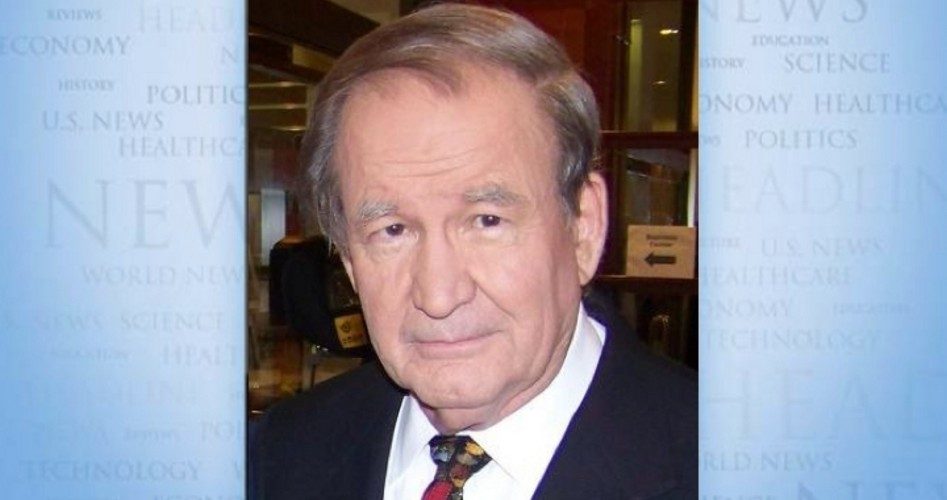
To manifest his opposition to President Donald Trump’s decision to pull all 2,000 U.S. troops out of Syria, and half of the 14,000 in Afghanistan, Gen. James Mattis went public and resigned as secretary of defense.
Now Director of National Intelligence Dan Coats, in public testimony to Congress, has contradicted Trump about the threats that face the nation.
Contrary to what the president believes, Coats says, North Korea is unlikely to give up its nuclear weapons. ISIS remains a serious threat, even if the caliphate has been rolled up. And there is no evidence that Iran, though hostile and aggressive, is acquiring nuclear weapons.
CIA Director Gina Haspel agreed: Iran remains in compliance with the nuclear treaty that Trump has trashed and abandoned. The treaty is still doing what it was designed to do.
At this perceived public defiance, Trump exploded:
“The Intelligence people seem to be extremely passive and naive when it comes to the dangers of Iran. They are wrong! … They [the Iranians] are testing Rockets (last week), and more, and are coming very close to the edge…. Be careful of Iran.”
Trump added: “Perhaps Intelligence should go back to school!”
Trump then brought up the epochal blunder of U.S. intelligence in backing the Bush II claim that Saddam Hussein had weapons of mass destruction (a “slam dunk”), and was a grave threat to the USA.
Born of incompetence and mendacity, that counsel led to the greatest strategic blunder of the 21st century, if not of U.S. history — the second Iraq War. Launched by George W. Bush, this invasion plunged us into the Middle East’s forever war and got the Republican Party ejected from power in 2006 and 2008.
While it’s not unusual for a president and the intel community to diverge on the gravity of threats, what is astonishing is that the intel leaders would declare a president to be flat-out wrong.
Yet the confrontation is not unhealthy, for it reflects reality. On foreign policy, we are divided not only on means but ends.
And the division calls to mind Walter Lippmann’s words, after U.S. political clashes and unpreparedness in FDR’s New Deal decade led to the early disasters at Pearl Harbor, Bataan and Corregidor.
“For nearly fifty years,” wrote the dean of American columnists, “the nation had not had a settled and generally accepted foreign policy. This is a danger to the Republic. For when a people is divided … about the conduct of its foreign relations, it is unable to agree on the determination of its true interest. It is unable to prepare adequately for war or to safeguard successfully its peace.”
We seem to be in just such a situation today.
Indeed, Trump is president because of the foreign policy disasters produced by his predecessors, who leaned on the U.S. intel community, and because Trump, in 2016, appeared to read the nation right.
Yet there is common ground between Trump and the spy chiefs.
Coats and Haspel are correct that the U.S. faces a Russia and China that are closer and more collaborative than they have been since the 1950s, before the Cuban missile crisis, which Mao saw as a Moscow capitulation.
And as we have more in common with Russia, with its historic ties to the West, and Russia appears by far the lesser long-term threat, how do we split Russia off from China? Here, Trump’s instincts are right and the Beltway Russophobes are wrong.
As for Iran, the intelligence community is consistent.
In 2007 and 2011, the CIA declared “with high confidence” that Iran had no nuclear weapons program. Now, with U.N. inspectors crawling all over Tehran’s nuclear facilities under the treaty, the CIA and DNI are still saying the same thing.
What of the contention that Iran is seeking hegemony in the Middle East?
Really? How? Would a nuclear-armed Israel, which has launched 200 strikes on Iran’s allies in Syria, accept that? What would Turkey, with the second-largest army in NATO, Egypt, the largest Arab nation, and Saudi Arabia have to say about that?
How could Shiite Iran, whose Persian majority is nearly matched by its Arab, Azeri, Baloch and Kurdish minorities, gain dominance over a Middle East where the vast majority is Sunni Arab? How is Iran a threat to us over here, compared to the threat we pose to Iran over there?
Iran broke out of its isolation for two reasons. First, George W. Bush came in and overthrew its Taliban enemies on its eastern border, and then he overthrew Saddam Hussein, the enemy on its western border.
As Trump contends, ISIS has been defeated and driven from its twin capitals — Raqqa in Syria and Mosul in Iraq. But it is also true that ISIS and al-Qaida still have tens of thousands of jihadists living among the peoples of the Middle East.
And the great question remains:
Are U.S. troops necessary over there — to prevent terrorists from coming over here? Or are they over here — because we are over there?
Photo of Patrick J. Buchanan: Bbsrock — Own work, CC BY-SA 3.0
Patrick J. Buchanan is the author of Nixon’s White House Wars: The Battles That Made and Broke a President and Divided America Forever. To find out more about Patrick Buchanan and read features by other Creators writers and cartoonists, visit the Creators website at www.creators.com.
COPYRIGHT 2019 CREATORS.COM



